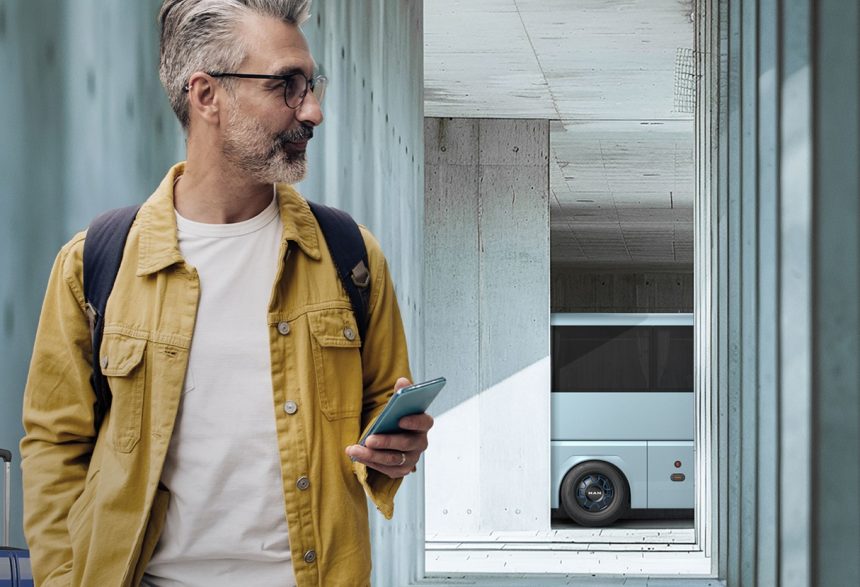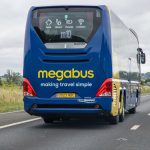MAN plans to commence series production of its first battery-electric coach model – the eCoach – during 2026 after premiering that vehicle at Busworld Brussels in October this year, the manufacturer has said.
That zero-emission shift by the manufacturer will start with the Lion’s Coach in tri-axle, 13.8m form. It will be built at the MAN plant in Turkey and utilise NMC battery chemistry in packs from the manufacturer’s factory in Germany. As with the move of its bus range to zero-emission, MAN is “focusing on a purely battery-electric drive” for the eCoach.
The Lion’s Coach is not offered in the UK, but MAN Truck and Bus Head of Product Marketing Heinz Kiess says the OEM “will gradually roll out further types in the coach segment by the turn of the decade.” Its aim is to achieve cost parity between diesel and battery-electric in that market.
“We also see the eCoach as a real opportunity for coach tourism and to reach new target groups in particular, for whom the issue of sustainability also plays an important role in travel planning,” Mr Kiess tells routeone.
Firm news of the battery-electric trajectory for MAN in coach follows early discussion during 2023 around that move, with Mr Kiess noting at that time that a range of 400km for the first such model was the target.
Commenting on the wider battery-electric coach market, he notes that while subsidies are key to the purchase of those vehicles, “this also goes hand-in-hand with a comprehensive charging infrastructure.”
Those words echo comments made by some in the UK coach industry, where the need for roadside and motorway high-power charging is viewed as imperative to significantly expand the rollout of battery-electric vehicles.
“As an industry, we need to rethink this and work together to motivate politicians to create new incentives for companies,” continues Mr Kiess.
“We should also keep a close eye on the destinations for coaches. Whether amusement parks, ski lifts or parking areas at sightseeing stops – the locations should be equipped with the appropriate charging infrastructure, which also makes it possible to offer exclusive charging points for coaches compared to electric trucks.”
He notes that MAN already has a project in Germany with partner FC Bayern Munich that will see charging for commercial vehicles and buses at the Allianz Arena in Munich from 2026.
Planning certainty on energy prices and investment security are further considerations on battery-electric coach procurement, Mr Kiess continues. “If all these requirements are met, we are positive about the transformation of our industry.
“We see opportunities in bidirectional charging, which we are currently investigating in terms of technical and economic feasibility.” Clear framework conditions in that field are needed for operators adopting battery-electric vehicles to plan and build around, Mr Kiess concludes.



























